Books Read in February 2013
I’m a few days late gathering this up this month – but what’s a few days (or a week or more) between friends?
 My reading seemed to take off in February as I made my first foray into several authors I’ve been wanting to try for some time. I also listened to the first audio book I’ve had since the old abridged “books on tape” that I “read” 15 years ago. The audio experience was integral to this particular book but I’m not sure I can fit these into my life regularly. We’ll see.
My reading seemed to take off in February as I made my first foray into several authors I’ve been wanting to try for some time. I also listened to the first audio book I’ve had since the old abridged “books on tape” that I “read” 15 years ago. The audio experience was integral to this particular book but I’m not sure I can fit these into my life regularly. We’ll see.
In the meantime – enjoy this month’s mini-reviews, and the extra links.
1. THE OUTERMOST HOUSE:: A Year of Life On The Great Beach of Cape Cod by Henry Beston (non-fiction, nature)

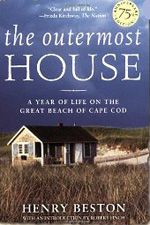 In 1925 Beston spent a year living in a simple two-room home on the outer arm of Cape Cod, facing the wide Atlantic Ocean. This book is a series of essays documenting the seasons there.
In 1925 Beston spent a year living in a simple two-room home on the outer arm of Cape Cod, facing the wide Atlantic Ocean. This book is a series of essays documenting the seasons there.
Beston believed that poetry had as much to do with his observations as science did, and his prose is “burnished, polished sentences, richly metaphoric and musical, that beg to be read aloud.” (Robert Finch, Introduction)
This is a book to be read in small doses and savoured. It’s everything I had hoped Walden would be, but wasn’t. Highly recommended. 5 stars.
Read this if: you love lyrical descriptions of creation’s beauty; or you want a glimpse of a vanished Cape Cod.
2. AN IMPORTANT MESSAGE FROM THE VINYL CAFE by Stuart McLean (audio, fiction, humour)

Most Canadians are familiar with Stuart McLean who is a regular voice on CBC Radio’s Vinyl Café. McLean is a superb storyteller, weaving magical tales about the everyday lives of Dave & Morley and their kids Stephanie & Sam.
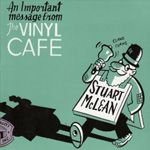 His stories are so brilliant that they work on the printed page (I have several of his Vinyl Cafe books
His stories are so brilliant that they work on the printed page (I have several of his Vinyl Cafe books) but are that much more perfect in an audio performance such as this. Trish at Desktop Retreat, who gave me the idea to listen to McLean rather than to read him, describes his work as “clever and sweet and funny and good natured”. I concur. 5 stars.
Read this if: you loved Stephen Leacock’s gentle stories; are a fan of NPR’s Garrison Keillor (McLean’s stories are, well, sweeter – but similar); or you just need a good laugh at the daily oddities of this thing we call “life”.
3. LITTLE LORD FAUNTLEROY by Frances Hodgson Burnett (fiction, classic, children’s chapter book)
![]()
The third son of the Earl of Dorincourt, Cedric Errol, is disowned by his widower father because he marries an American. The couple have a child; Cedric Sr. dies in an influenza epidemic; both of the Earl’s older sons die – and, guess what? – the American boy Cedric inherits the title. His grandfather has him brought to England to groom him for the position.
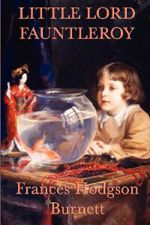 Cedric is a paragon of beauty and virtue but, even though I tried, I couldn’t dislike him. “He was always lovable because he was simple and loving. To be so is like being born a king.”
Cedric is a paragon of beauty and virtue but, even though I tried, I couldn’t dislike him. “He was always lovable because he was simple and loving. To be so is like being born a king.”
What a wonderful children’s story this is – and I’m so very sorry that I missed it a s a child. 4½ stars
Read this if: you have a child to share it with (oh, do introduce him or her to Cedric!); you’d like a child’s view of the world of Downton Abbey; or if you value classics.
4. THE FLOWERS OF WAR by Geling Yan (fiction, historical, translated)
![]()
This novel, the February pick for the War & Literature Read-Along, is set in 1937-38 Nanking, China during the beginning of the occupation by the Imperial Japanese army at the start of the second Sino-Japanese war. The period beginning mid-December 1937 has become known as “the Rape of Nanking“, for what seems to be very good reason.
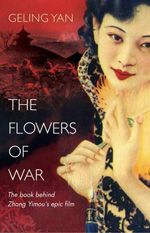
The priest at a church ‘compound’ has had thrust upon him the care of twelve young students from an all-girls school, whose parents for various reasons, have not been able to collect them. Shortly after the arrival of the schoolgirls, several prostitutes from a neighbouring brothel scale the compound walls, and a small group of wounded Chinese soldiers take refuge there as well, setting the scene for the novel’s tragic climax.
The prose in this book is simple and straight-forward; so simple, in fact, that at times I thought perhaps this was a Young Adult book. But on consideration, I believe that it is the effect of the original Chinese language, and the translation.
Even though it may not appear to be at first, Flowers of War is an extremely powerful book about the horrors of war and the sacrifices of ordinary men and women. Warning: The last chapter is very graphic, although not gratuitously so, and describes savagery you will not soon forget. 4½ stars
Read this if: you want to find out about the war between China & Japan that preceded WWII, and is now forgotten by the majority of North Americans.
5. EXCELLENT WOMEN by Barbara Pym (fiction, vintage, gentle humour)
![]()
This is the February selection of the LibraryThing’s Virago group reading for Barbara Pym’s centenary year. It’s also the second Pym I’ve personally read, and I think the better of the two.
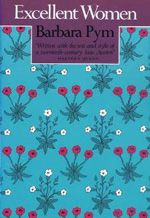 The “Excellent Women” of the title are those sacrificing “spinster” (in their thirties and unmarried!) ladies who filled every church congregation in England throughout the twentieth century. Those who peopled the committees, fed the bachelor rectors and vicars, and never expected that their lot would change.
The “Excellent Women” of the title are those sacrificing “spinster” (in their thirties and unmarried!) ladies who filled every church congregation in England throughout the twentieth century. Those who peopled the committees, fed the bachelor rectors and vicars, and never expected that their lot would change.
“It was not the excellent women who got married but people like Allegra Gray, who was no good at sewing, and Helena Napier, who left all the washing up.”
Pym pokes sly fun, through her protagonist Mildred Lathbury, an orphaned clergyman’s daughter in her early thirties, at the day’s social perspective.
I felt that I wanted to be alone, and what better place to choose than the sink, where neither of the men would follow me?
Choice British wit and recommended. 4 stars
Read this if: you’d enjoy a gentle romp through the sexual, class, and religious mores of the mid-twentieth century England church.
6. THE BIBLE SALESMAN by Clyde Edgerton (fiction, gentle humour)
![]()
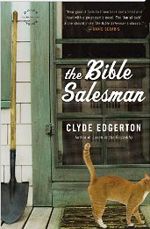 Set in 1950 in the Southern U.S., The Bible Salesman tells the story of a few months in the life of Henry Dampier, 20-year-old door to door bible Salesman. Henry is a ‘good boy’, intelligent but oh-so-naïve. Preston Clearwater, a key figure in a large auto theft ring, hires Henry for a small job and manages to convince him that he is undercover FBI and Henry can be too.
Set in 1950 in the Southern U.S., The Bible Salesman tells the story of a few months in the life of Henry Dampier, 20-year-old door to door bible Salesman. Henry is a ‘good boy’, intelligent but oh-so-naïve. Preston Clearwater, a key figure in a large auto theft ring, hires Henry for a small job and manages to convince him that he is undercover FBI and Henry can be too.
Edgerton does a brilliant job of conveying Henry’s intelligence, even though his naïveté causes him to unquestioningly trust this stranger. Henry’s ponderings on his Bible readings are also interesting.
(T)hen it [the Bible] said that Adam would return to dust. Why wouldn’t he go to heaven or hell? That’s where everybody went, wasn’t it? Nobody just returned to dust, did they? Was there not a heaven when Adam was alive? Wait, in Genesis 1:1 God created heaven and earth; so there was a heaven when he told Adam he was going back to dust, but God didn’t create hell. Did he create hell? It didn’t say so.
Great questions, Henry.
This is a warm and amusing book with a preposterous scenario at its heart. But it works. Recommended. 4 stars
Read this if: you’re looking for a light read with a likeable every-day-type protagonist; or if you’d like to compare how modern communication (mainly the Internet) has informed and educated just about everybody.
7. WITH YOUR CROOKED HEART by Helen Dunmore (literary fiction)
![]()
Paul & Louise are married and childless for 10 years before Louise conceives Anna by an illicit affair with Paul’s younger brother Johnny. Paul is a successful businessman; Johnny runs with the criminal element. Louise becomes an alcoholic because she gained weight with Anna and couldn’t stand being ‘fat’. Because she’s an alcoholic, Paul eventually gets custody of Anna.
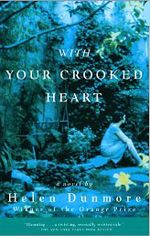 It sounds like something you’re read a hundred times, but in Dunmore’s hands, it turns into much more. The story is told from various points of views and persons, but is mainly Louise’s story. As the plot builds to its almost inevitable conclusion, one almost wants to look away and not watch how Louise destroys her life.
It sounds like something you’re read a hundred times, but in Dunmore’s hands, it turns into much more. The story is told from various points of views and persons, but is mainly Louise’s story. As the plot builds to its almost inevitable conclusion, one almost wants to look away and not watch how Louise destroys her life.
This is my first foray into Dunmore’s writing (she won the 1996 Orange Prize—now the Women’s Prize for Fiction—for her book A Spell of Winter). Her writing is so adroit! See the stories that these few words paint:
I love daylight sleep. First of all there are the hours it eats, that you never have to live.
Only one thing puzzles me: Dunmore uses the phrase “it’s not Nova Scotia” twice in the book. As in:
‘Not much else for her to do up there.’
‘It’s not Nova Scotia, Lou.’
A bit of an odd expression, but I let it go.
I, too, think it’s a bit of an odd expression and, since I live in Nova Scotia, I’m curious about it. Can anybody shed any light on Dunmore’s use of this phrase? 3½ stars.
Read this if: you love intelligent use of words; or you fancy a warning tale about lives that go off the track—through personal choices.
‘Heart’ is a qualifying keyword on the Keyword Reading Challenge at Bookmark to Blog.
8. SAFE FROM THE SEA by Peter Geye (fiction)
![]()
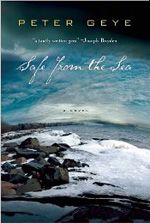 Noah Torr is summoned by his dying father to said father’s cabin in the woods near Duluth Wisconsin. Olaf was an officer on the great freighters that ply mighty Lake Superior and in 1967 was one of only three survivors when his ship went down – comparisons to the Edmund Fitzgerald were, of course, inevitable in my mind. Noah is bitterly resentful of his father’s drinking problem and his ‘absence’ from his young life.
Noah Torr is summoned by his dying father to said father’s cabin in the woods near Duluth Wisconsin. Olaf was an officer on the great freighters that ply mighty Lake Superior and in 1967 was one of only three survivors when his ship went down – comparisons to the Edmund Fitzgerald were, of course, inevitable in my mind. Noah is bitterly resentful of his father’s drinking problem and his ‘absence’ from his young life.
Unfortunately, I didn’t find this the “tautly written gem” that Joseph Boyden, one of my favourite authors, found. Geye has a powerful story to tell – of the night the ship sank and of the rifts and healings between father and son – but the book has more of a commercial, rather than literary, flavour. I didn’t really connect to any of the characters—and was especially annoyed by Noah’s wife who gives him grief for being with his dying father, because she’s ovulating and wants him home to try for a baby. I mean, c’mon, his father’s dying and you’ll ovulate next month, won’t you? I was going to rate this a “4”, but decided while I was writing this on 3½ stars.
Read this if: you’re interested in a harrowing tale of how it just might be on a freighter that is sinking in stormy waters.
9. THE SOUL OF KINDNESS by Elizabeth Taylor (fiction, vintage)
![]()
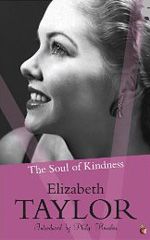
This was originally published in 1964; the copy I read was the Virago Modern Classic with a 1983 introduction by Philip Hensher. This was my first sample of Taylor’s writing and I was slightly disappointed: the writing is beautiful but the story didn’t live up to the cover hype.
Yes, Flora is a spoiled brat masquerading as everyone’s golden girl,
“It’s so miserable of everybody. I thought it would please them to be asked. It would please me. And if I were in their place, I’d do anything rather than spoil my happiness.”
but the cover and the intro promised something almost sinister.
I’ll definitely try Taylor again, but I rate this 3½ stars.
Read this if: you feel you’re being manipulated by someone in your life – perhaps looking at an objective situation will help you gain perspective – and tools to snip the strings.
I read this as this month’s random pick from my TBR wish list spreadsheet of 2,323 items for the Random Reads Challenge hosted by I’m Loving Books.
10. DEATH OF A FOOLaka Off With His Head by Ngaio Marsh (fiction, mystery, vintage)
![]()
February was a month of first tries of well-respected authors. I grew up loving Agatha Christie – and I don’t know how I never heard of Ngaio Marsh before a couple of years ago. (And I’m not sure that, without the Internet, I would be familiar with her yet today.)
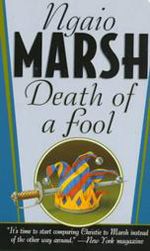 This was my first Marsh because I won it from Bev at My Reader’s Block for completing a mini-challenge in last year’s Vintage Mysteries Reading Challenge, but it’s #19 in the Insepctor Roderick Alleyn series.
This was my first Marsh because I won it from Bev at My Reader’s Block for completing a mini-challenge in last year’s Vintage Mysteries Reading Challenge, but it’s #19 in the Insepctor Roderick Alleyn series.
I liked Alleyn and I thought the mystery was fairly clued, if a little confusing, since there was a heavy country dialect and an apparent assumption that the reader would have some knowledge of British country folk theatre.
I’m definitely going to read lots more Marsh. This first try: 3½ stars
Read this if: you have an interest in folk theatre, particularly in winter solstice dance rituals.
11. A SHILLING FOR CANDLES by Josephine Tey (fiction, mystery, vintage)
![]()
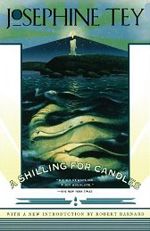 This is the second in the Inspector Alan Grant and, as in the first, the solution to the mystery is a little weak. I want to love Josephine Tey, and I already own the rest of the Inspector Grant titles (Touchstone softcovers), except that most famous, The Daughter of Time
This is the second in the Inspector Alan Grant and, as in the first, the solution to the mystery is a little weak. I want to love Josephine Tey, and I already own the rest of the Inspector Grant titles (Touchstone softcovers), except that most famous, The Daughter of Time. So I know I will be reading more and, while I enjoy the stories moderately well, I’m hoping for stronger mysteries in future books. 3½ stars
Read this if: you’d enjoy an easy mystery read by a famous author.
NATIVE SON by Richard Wright (fiction, 20th century classic)
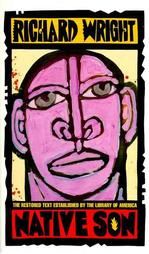
Bigger Thomas lives on Chicago’s south side in the 1930s and begins a job as a chauffeur to a rich white family, as a condition of his welfare payments. On his first night on the job, Bigger finds himself having inadvertently killed his young employer and then sets in motion a series of decisions that can only lead to disaster.
It was eye-opening to see just how uninformed people were in the 1930s: all Bigger knows about white people he has learned in the movies, and he is at a loss how to behave in his new job. He also doesn’t understand terms his employers use, for example “capitalist”.
Wikipedia says: “[Native Son] was one of the earliest successful attempts to explain the racial divide in America in terms of the social conditions imposed on African-Americans by the dominant white society.”
I know this is a 20th century classic. I know that it is a seminal work in modern black fiction. But I read 150 pages of Native Son—what I understand to be Part 1 – Flight—and I couldn’t go any further. It was like watching a train wreck happen – just too painful.
Do any of this month’s selections appeal to you? Which would you choose to read? (Maybe you’ve already read one or more?)
BOOK DEPOSITORY has free world-wide delivery:
![]()
OR: Pick up some bargains at

OR

Links for Canadian readers:
The Outermost House
An Important Message From The Vinyl Cafe (audio)
Vinyl Cafe print books
Little Lord Fauntleroy
Donwton Abbey on DVD
The Flowers of War
Excellent Women
With Your Crooked Heart
A Spell Of Winter
Safe From The Sea
The Soul of Kindness
Death of a Fool
A Shilling for Candles
The Daughter of Time
Native Son
KINDLE editions:
Little Lord Fauntleroy (FREE)
The Flowers of War
Excellent Women
Safe from the Sea
The Soul of Kindness
A Shilling for Candles
The Daughter of Time
Native Son


The Flowers of War appeals to me. I have read many books by Lisa See and this one is around the era that she writes about.
Sounds like a real winner to me.
I haven’t read anything by Lisa See, Marjorie, although she is on my TBR list. I think Flowers of War might be just a touch darker – but I’m not sure. Let me know what you think if you read it!
Random Thoughts. Agree that it’s much more fun to listen to the Vinyl Cafe stories; I liked them alright on the page, but the rhythm of the telling adds a great deal for me. Why haven’t I read Helen Dunmore yet: I keep collecting her, not reading her….sigh. That’s one of Elizabeth Taylor’s that I haven’t read, but I’m already fond of her so I am predisposed to enjoy it anyhow. I know, I know….how does one miss Marsh….but I had the same thing happen, though I borrowed from the library so did start with the first (also enjoyable). Love the mix of stories you’ve read in February!
Love your random thoughts! I do like to be eclectic in my reading. 😉
Oh I didn’t know that it was Barbara Pym’s centennary year. Now I want to read something by her this year. I’ve only read one of her books Quartet in Autumn- it was a few years ago now, and I remember loving it. Perhaps I should reread that, I think it must be around the house somewhere.
A Quartet in Autumn is the group’s June pick, Louise, so you could read along. 😉 Here’s the complete list for the year.
BTW I really love the graphic design and the colours of your blog. It’s beautiful.
Barbara Pym sounds wonderful. I’ll have to see about adding her to my TBR shelf.
I also immediately zoomed in to Joseph Boyden’s name as he is one of my favourite author’s too. Do you suppose he’ll ever come out with the sequel to Through Black Spruce and Three Day Road? Such wonderful books, those.
Trish, back when I reviewed Through Black Spruce – this was 2009 or 2010, I P.S.’d with this comment:
I see by LibraryThing that he has additional writings, but I’m not sure what they’re about.
I really enjoy Barbara Pym’s fiction, too – most recently A Glass of Blessings. Hope to read at least a couple more of her novels this year in honor of the centenary.
The centenary has been a great motivator for me to read Pym, JoAnn! Thanks for dropping by. 🙂
The Dunmore book appeals to me most I think. I have A Shilling for Candles on my bedside table at the moment so should get to it soon. I read the Barbara Pym books years ago but have just started to reread some of hers.
There is a Scottish element to the Dunmore book that you might particularly enjoy, Kat. (“It’s not Nova Scotia.”)
I thought I had read something about at least one of the stories in his collection being connected to the novels (or the characters in them) in some way (about Boyden, I mean)…
Well, I guess I’m just going to have to read the rest of his “stuff” and find out! Thanks for the tip, BiP.